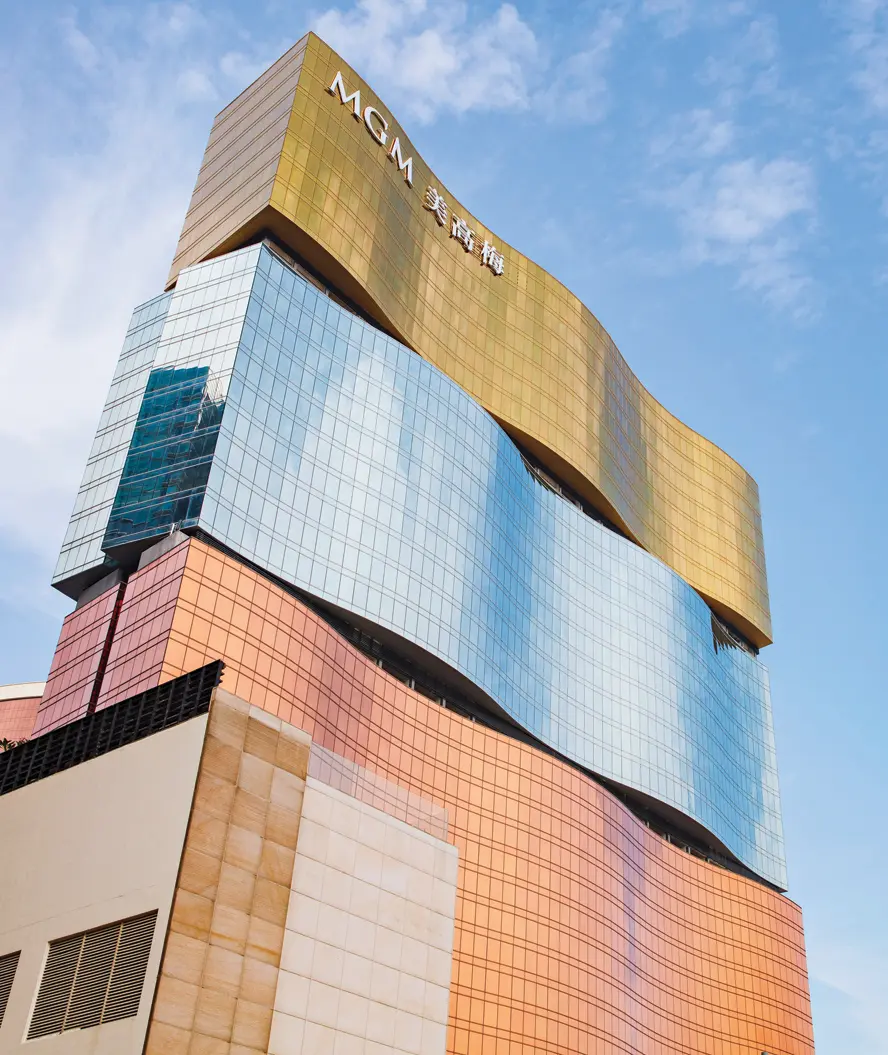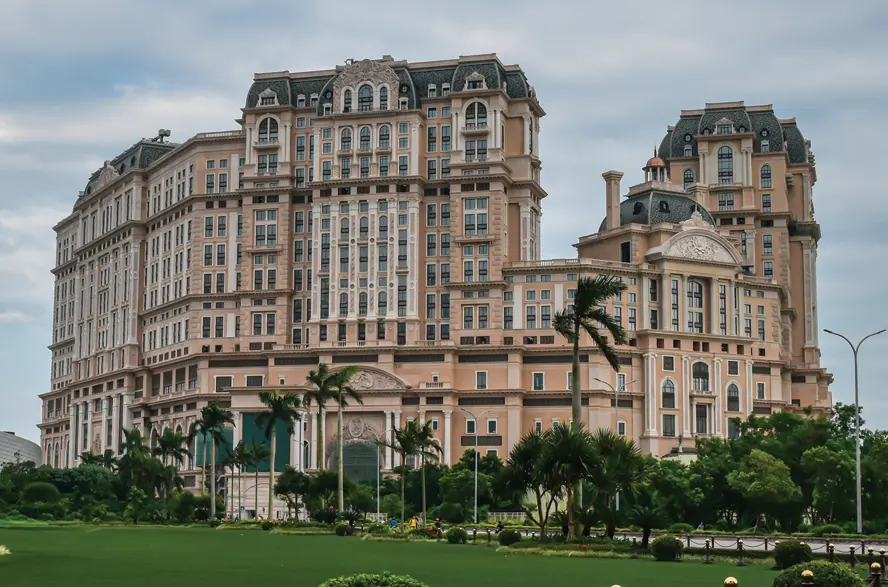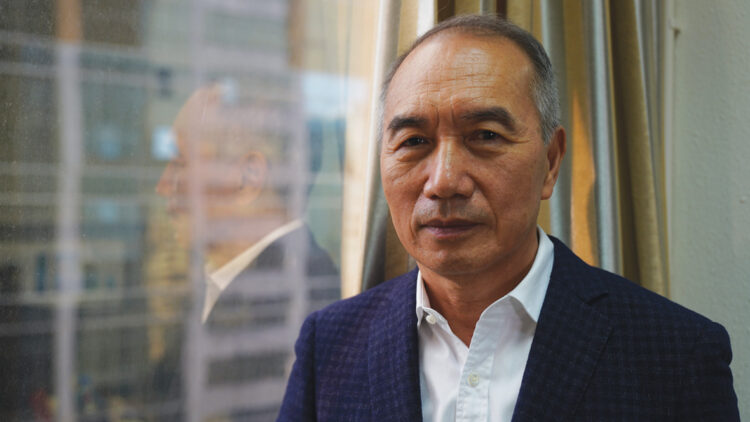Kwok Chi Chung, President of the Macau Association of Gaming and Entertainment Promoters, offers his thoughts on what Macau must do to become competitive on the international tourism scene in the future.
 With the successful renewal of the six gaming concessions in Macau and the passage of the new Gaming Law, as well as the Legal Framework for Operating Games of Chance in Casinos (commonly known as the Junket Law), Macau’s gaming industry is set to break new ground in the future. However, requiring gaming companies to attract foreign gamblers concerns the gaming industry, as the difficulty of achieving this goal will be much higher in the future than it was 20 years ago. In the next 10 years of gaming operations, the Macau government requires the six gaming companies to develop the market of foreign customers and establish exclusive foreigner-only gaming zones. Concessionaires could receive a tax break of up to 5% for successfully increasing foreign visitation to bet in Macau, although this 5% would only apply to gross gaming revenues (GGR) directly generated from these foreigner-only gaming zones.
With the successful renewal of the six gaming concessions in Macau and the passage of the new Gaming Law, as well as the Legal Framework for Operating Games of Chance in Casinos (commonly known as the Junket Law), Macau’s gaming industry is set to break new ground in the future. However, requiring gaming companies to attract foreign gamblers concerns the gaming industry, as the difficulty of achieving this goal will be much higher in the future than it was 20 years ago. In the next 10 years of gaming operations, the Macau government requires the six gaming companies to develop the market of foreign customers and establish exclusive foreigner-only gaming zones. Concessionaires could receive a tax break of up to 5% for successfully increasing foreign visitation to bet in Macau, although this 5% would only apply to gross gaming revenues (GGR) directly generated from these foreigner-only gaming zones.
The president of the Macau Association of Gaming and Entertainment Promoters, Kwok Chi Chung, believes that Macau is capable of incentivizing foreign customers to visit Macau for gaming.
 “Macau is no less competitive than other places, as the operations at the Cotai Strip are already mature enough, and the facilities and gaming regulations are well established, giving enough security and confidence for foreign visitors when gambling in Macau,” he said.
“Macau is no less competitive than other places, as the operations at the Cotai Strip are already mature enough, and the facilities and gaming regulations are well established, giving enough security and confidence for foreign visitors when gambling in Macau,” he said.
“Twenty years ago, almost all high-end customers were foreigners or Hong Kongers, and there were basically no high-end customers from China in the VIP lounges. All high-end customers were from other places like Thailand, Indonesia, Japan, Korea or Hong Kong.”
After the implementation of the Individual Visit Scheme in mainland China in 2003, which provided a means by which individuals could visit Hong Kong and Macau without requiring a business visa or to be part of a tour group, the source of gaming customers in Macau gradually shifted. But with Beijing cracking down on cross-border gambling, the need to move back towards a more foreigner-focused model – as challenging as that may be – has become apparent once more.
Kwok agrees that it will not be easy to make the shift away from mainland customers but said Macau’s gaming operators have no choice but to try.
Mainland China has amended the law on offshore gambling thus gaming concessionaires and junket operators are not allowed to actively invite mainlanders to visit Macau for gambling,” he said.
 “Gaming concessionaires and junket operators have to be passive towards mainland customers, but we could be very active in attracting foreign customers.
“Gaming concessionaires and junket operators have to be passive towards mainland customers, but we could be very active in attracting foreign customers.
“However, the competitive environment in foreign countries is different compared with 20 years ago. [Back then] there were no casinos in Singapore, but now Singapore has established casinos which are operating very well, and Thailand and Japan are planning to open casinos as well.”
Kwok stressed that Macau had lost much of its attractiveness over the past three years, making it more important than ever for the city to recognize its own competitive advantages.
“The hardware and facilities in Macau are all adequate and world-class, but how to make Macau more fascinating to foreign guests than other places will be an important task for Macau’s gaming concessionaires and junket operators in the future,” he said, noting that expectations of recovery in the coming years should remain subdued.
“VIP rooms accounted for more than 50% of Macau’s gross gaming revenue [previously], but Macau’s gaming industry will focus on the mass market in the future as VIP rooms have almost disappeared. The change from VIP room business to mass market business will definitely have an impact on the gaming industry, and future GGR will not be better than before.
 “It takes time for a person to recover from an illness.
“It takes time for a person to recover from an illness.
“Macau needs time to recover, although it is difficult to predict how long it will take. Macau’s economy reached rock bottom. With the relaxation of anti-COVID measures in Macau and the reopening of the border between Hong Kong, [the government has estimated] that GGR could reach MOP$130 billion (US$16.2 billion) in 2023.”
On the issue of VIP play, Kwok said he expects some junket operators to survive, although to what extent remains to be seen.
Macau passed its new Junket Law on 15 December, which stipulates that junkets are no longer allowed to share gaming revenue, can only receive a commission of 1.25% from concessionaires and are limited to inking business partnership agreements with a single concessionaire.
“Junket operators will remain working in casinos as long as they find a way to survive,” Kwok said.
 “The problem is whether they can make [a reasonable] profit. If they are not allowed to solicit customers from the mainland they can go to Hong Kong or Japan to expand the market. Junket operators still have room to survive, although they will not make their fortune as easily as before.”
“The problem is whether they can make [a reasonable] profit. If they are not allowed to solicit customers from the mainland they can go to Hong Kong or Japan to expand the market. Junket operators still have room to survive, although they will not make their fortune as easily as before.”






























